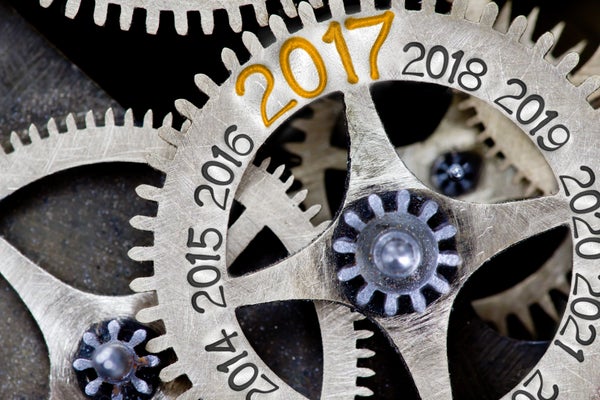If you were overwhelmed by the news in 2017, you aren’t alone. Every day seemed to bring monumental developments in all spheres of current events, from international relations and gender inequality to health care and domestic energy policy. Science was at the forefront often, so we’ve catalogued the two most important developments in each of five topic areas based on our editor’s top picks and our most popular articles. If getting the daily news feels like drinking from a fire hose, this list can help you stay focused on the science developments that matter.
Space and Physics
On supporting science journalism
If you're enjoying this article, consider supporting our award-winning journalism by subscribing. By purchasing a subscription you are helping to ensure the future of impactful stories about the discoveries and ideas shaping our world today.
1. The first total solar eclipse to cross the U.S. from coast to coast in 99 years occurred on August 21. It gave people across the country an excuse to duck away from their normal occupations and observe the phenomenon, but it also afforded scientists a rare chance to study the sun’s chemistry, Einsteinian relativity and Earth’s place in the solar system.
Read more in this collection of articles: The Great Solar Eclipse of 2017
2. After 2016’s spectacular observation by the Advanced Laser Interferometer Gravitational-Wave Observatory (LIGO) of two colliding black holes, the gravitational-wave astronomers reported this year they had detected the collision of two neutron stars.
Read more here: Gravitational Wave Astronomers Hit Mother Lode
Sustainability and Climate
1. The 2017 hurricane season saw record-breaking hurricanes pummel the U.S. Gulf Coast, Florida, Puerto Rico and other islands in the Caribbean. Was climate change behind these extreme events?
Read more: Was the Extreme 2017 Hurricane Season Driven by Climate Change?
In June Pres. Donald Trump announced he would withdraw the U.S. from the Paris climate accord. Our reporter breaks down the impact of that policy change on U.S. carbon emissions.
Read more: Trump Pulls Out of Paris: How Much Carbon Will His Policies Add to the Air?
Technology
1. In April the U.S. dropped a 22,000-pound bomb on Afghanistan in a strike against ISIS forces.
Read more: What Is the “Mother of All Bombs” That the U.S. Just Dropped on Afghanistan?
2. In light of recent major data breaches, many experts are eyeing how artificial intelligence will affect big data in the years to come.
Read more: Will Democracy Survive Big Data and Artificial Intelligence?
Health
1. Several mass shootings and fatalities hit the headlines this year. In this definitive article the evidence shows more guns in the hands of the public do not keep people safe.
Read more: More Guns Do Not Stop More Crimes, Evidence Shows
2. Drug-overdose deaths have been skyrocketing the past several years—now exceeding the number of people dying in car crashes or from gunshots in the U.S. The rise is being met with a hunt for an effective opioid vaccine.
Read more: Fighting the Opioid Crisis with Vaccines and Better Chemistry
Mind and Brain
1. Marijuana is quickly shedding its bad rap as an illicit drug and steadily gaining acceptance as a medical treatment for myriad conditions. A recent study, however, showed concerning results in teens who used pot before age 18.
Read more: Link between Adolescent Pot Smoking and Psychosis Strengthens
2. If you spent any part of 2017 trying to argue someone out of their deepest-held beliefs, this one’s for you. Our own Michael Shermer offers how to convince people who aren’t swayed by cold hard facts:
Read more: How to Convince Someone When Facts Fail
